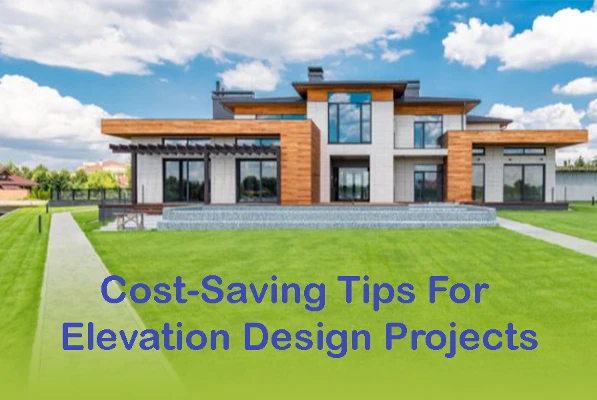
When planning to enhance the exterior look of your home through elevation design, it's crucial to have a clear understanding of the costs involved. Unexpected expenses can quickly derail your budget and cause delays in the project. Here are some key strategies to help you avoid unexpected costs for elevation design:
To avoid unexpected costs for house elevation design, it's essential to take charge with careful planning and budgeting for the project. Here are some key takeaways and strategies to consider:
Understanding the Components and Elevation Design Cost in Bangalore:
Familiarize yourself with the various cost elements involved in elevation design, including material expenses, labour charges, professional fees, approvals, and miscellaneous expenses. This knowledge will help you allocate the right budgets and anticipate potential costs.
Location and Project Size Matter a Lot in Bangalore:

The geographical location and scale of the project significantly influence the overall cost of the elevation design. For instance, projects in urban areas tend to be more expensive due to higher land values and labour costs, while smaller towns and remote areas have more economical pricing.
Design Complexity and Quality of Construction:
The design's complexity and the construction's quality also impact the cost. Simple rectangular designs with regular floor plans and elevations are generally less expensive than complex, curved, or angular structures.
Material Choices:

The selection of materials for elevation finishes plays a significant role in determining the overall project cost. Choose locally available materials to optimise costs and consider the long-term value of investing in quality materials.
Professional Fees and Expert Guidance:
Hiring experienced architects and designers can ensure higher quality standards, better value engineering, and smoother execution with their vendor networks. However, their fees may be higher than those of new firms.
Contingency Planning and Budgeting:
Always have a contingency plan in place to account for unforeseen expenses. A 5-10% buffer for unexpected costs is recommended to ensure that projects stay within a budget.
Prioritizing Needs and Smart Budgeting:
Carefully prioritise the needs of the project and allocate the budget accordingly. Consider the importance of different design elements and focus on the most critical aspects first.
Online Architectural Services:
Online architectural services can offer significant cost benefits through lower consultation fees and optimised design. This option is particularly suitable for smaller projects or those with limited budgets.
Elevation Design Review Process:
Ensure that the elevation design review process is thorough and includes input from multiple stakeholders. This will help identify potential issues early on and minimise costly changes during construction.
Project Coordination and Management:
Effective project coordination and management are crucial to ensuring that the elevation design project stays on track and within budget. This includes regular communication with the design team, contractors, and other stakeholders.
What Are Some Cost-Saving Tips For Elevation Design Projects?

-
Choose Local Materials: Use locally sourced materials to reduce transportation costs and support local economies.
-
Simplify the Design: Opt for straightforward designs with clean lines to lower material and labor costs.
-
Prioritize Essential Features: Focus your budget on key elements and scale back on non-essential features.
-
Plan for Energy Efficiency: Invest in energy-efficient materials and systems for long-term savings on utility bills.
-
DIY Elements: Take on tasks like landscaping or painting to save on labor costs.
-
Get Multiple Quotes: Compare prices from different contractors to ensure competitive pricing.
-
Invest in Quality Upfront: High-quality materials and skilled professionals can save money on maintenance and repairs.
-
Use Online Design Services: Explore online architectural services for cost-effective design solutions.
-
Allocate a Contingency Fund: Set aside 5-10% of your budget for unexpected expenses.
-
Plan Thoroughly: Comprehensive planning helps avoid costly mistakes and future renovations.